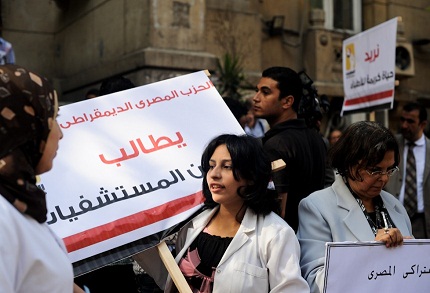The ninth round of negotiations on the Grand Ethiopian Renaissance Dam (GERD) began in Cairo Saturday, to last for two days, to discuss points of conflict and future scenarios.
The tripartite national committee headed by the Egyptian, Sudanese and Ethiopian Ministers of Irrigation began Saturday morning with the opening session.
Egyptian Minister of Irrigation and Water Resources Hossam Moghazi stated during the opening session that the pace of the Renaissance Dam’s implementation is much faster than the pace of negotiations, state-owned Al-Ahram reported.
The meeting was scheduled to take place in October; however it was delayed based on requests from Ethiopia and Sudan due to internal conditions in both states.
Moghazi also met with Ethiopian Minister of Irrigation Friday ahead of the conference, where they both stressed the need to hasten the pace of negotiations and the release of technical reports. He also pointed to the importance of the conference, which met on the ministerial-level this time, and not on the level of experts.
The ministerial-level conference is expected to discuss the points of conflict that arose between the two international consulting agencies, which are conducting the needed studies on the GERD’s construction and its impact on Egypt’s and Sudan’s water resources.
Upon sorting out the points of contention, technical reports should be prepared over the course of 11 months to identify the negative effects of the project.
During his visit to the US as part of the United Nation’s 70th anniversary, President Abdel Fattah Al-Sisi met with Ethiopian Prime Minister Hailemariam Desalegn , and stressed on the need for faster implementation of agreed upon procedures in the Declaration of Principles.
The Declaration of Principles was signed by Egypt, Sudan and Ethiopia in March, and constituted the governing principles of cooperation between the three states, paving the way for further agreements.
The dam, which Ethiopia is currently constructing along the Nile, has been a point of contention between Egypt and Ethiopia, with the former fearing that it will affect its share of Nile water.
Egypt rejects the GERD’s current high storage capacity at 74bn cubic metres, as studies showed it will affect its national water security.
As per agreements signed in 1929 and 1959, Egypt annually receives 55.5bn cubic metres of the estimated total of 84bn cubic metres of Nile water produced each year, whilst Sudan receives 18.5bn cubic metres.



